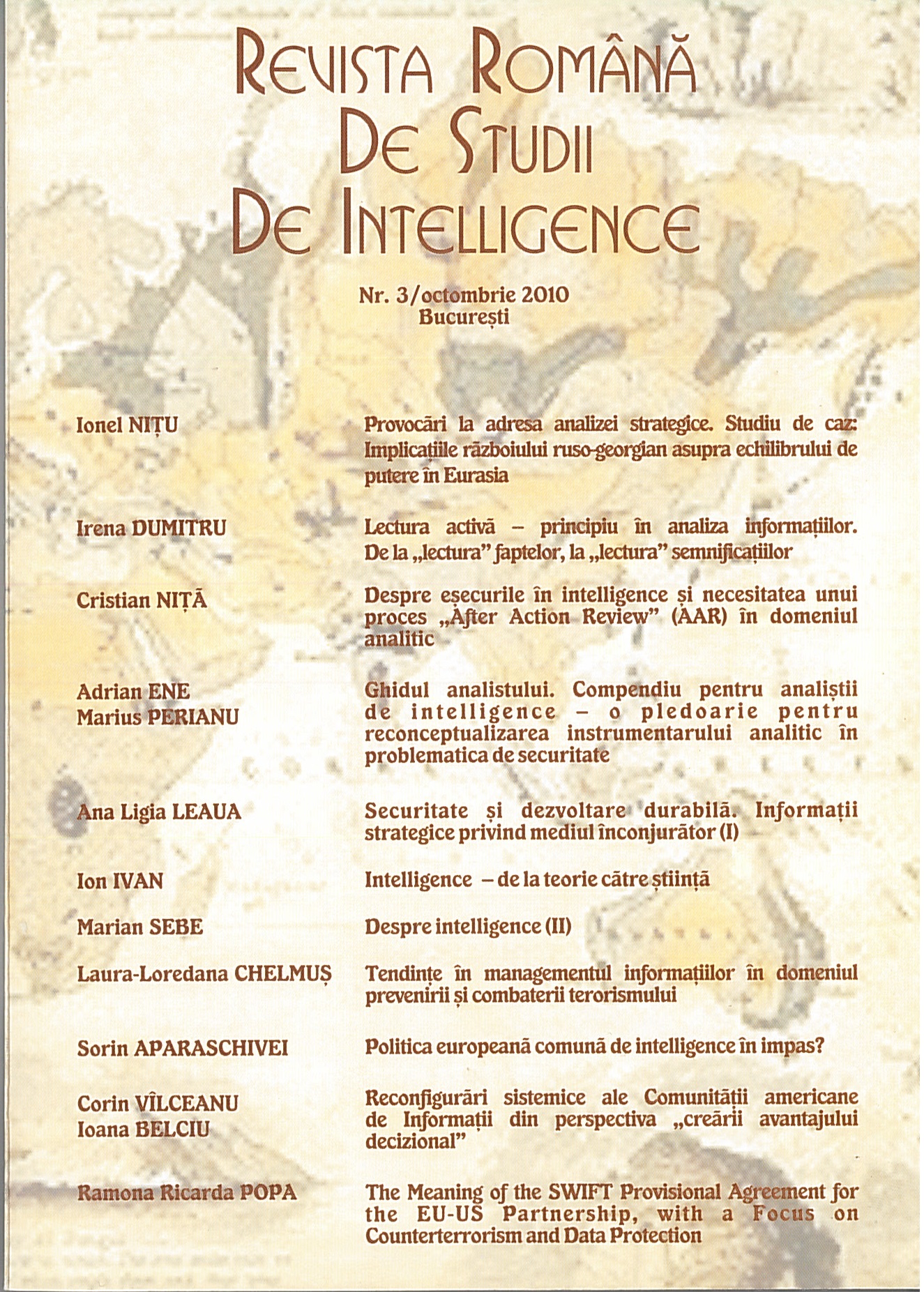Politica europeană comună de intelligence în impas?
Is common European Intelligence Policy in Trouble?
Author(s): Sorin AparaschiveiSubject(s): Social Sciences
Published by: National Institute for Intelligence Studies
Keywords: sharing intelligence; Club of Berne; Europol; intelligence cooperation
Summary/Abstract: The members of the European Union have good reasons to want to engage in intelligence sharing. Common policies, including the development of a single economy and common foreign policy, mean that the member states increasingly face similar threats to their internal and external security. In this context it appears necessary to re-think the role of national intelligence agencies in the EU context and the possibility of enhancing multilateral intelligence cooperation. It is not surprising, then, that they have developed institutions such as the Club of Berne, Europol, and the Military Staff to facilitate the exchange of intelligence. But full and effective intelligence sharing requires that participants either hold a strong degree of trust in other participants’ promises not to defect, or the creation of effective rules and institutions designed to counter concerns about such defection. The available evidence indicates that mistrust is a substantial barrier to full sharing in the European Union. The member states have insisted that intelligence sharing remains voluntary, therefore, they have declined to create European institutions with the capacity to monitor and punish violations of promises to share, and in their public comments suggest that the trust among them is too low to allow full sharing.
Journal: Romanian Intelligence Studies Review
- Issue Year: 2010
- Issue No: 03
- Page Range: 139-155
- Page Count: 17
- Language: Romanian

